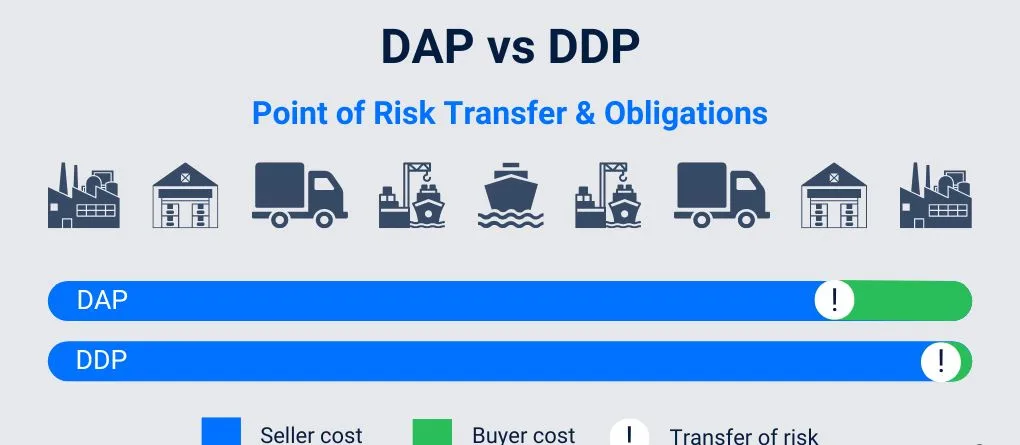Freight carrier is a company or individual responsible for transporting goods from the place of origin to the recipient’s destination by road, rail, sea, or air. While a freight forwarder manages the freight process, a freight carrier is responsible for transportation. Multiple carriers, such as trucking companies for pick-up and delivery and airlines and shipping companies for air and ocean freight, usually handle international shipping.
Freight carrier is a company or individual responsible for transporting goods from the place of origin to the recipient’s destination by road, rail, sea, or air. While a freight forwarder manages the freight process, a freight carrier is responsible for transportation. Multiple carriers, such as trucking companies for pick-up and delivery and airlines and shipping companies for air and ocean freight, usually handle international shipping.
What does a freight carrier do?
- Provide vehicles (e.g., trucks, freighters, airplanes, etc.).
- Arrange for loading, unloading, and delivery of goods.
- Ensure the safety of goods during transportation.
- Provide cargo tracking and status updates.
- Handle transportation contracts and related documents (e.g., bills of lading, insurance policies, etc.).
The difference between freight forwarders and freight carriers
Roles and responsibilities
Freight carriers are directly responsible for the physical transportation of goods and own or rent the means of transport, such as trucks, ships, and aircraft. They are the actual executors of the transportation of goods, transporting goods from one place to another. For example, a road freight company with its own fleet of trucks will have the driver drive the vehicle to transport the goods from the warehouse of dispatch to the place of receipt.
Freight forwarders act as intermediaries, mainly coordinating the relationship between the consignor and the carrier. They do not directly transport the goods but rather find a suitable carrier for the consignor and arrange for transport, including booking space (ocean freight, air freight), customs clearance, inspection, and other procedures. For example, a freight forwarder will select the appropriate shipping schedule and space from among the many shipping companies based on the consignor’s goods and transport needs and then contact the shipping company to arrange for the goods to be loaded on the ship.
Legal liability
Freight carrier are directly responsible for the safe and timely delivery of goods during transportation. If goods are damaged, lost, or delayed, the carrier is liable to the sender or recipient for compensation by the transport contract and relevant laws and regulations. For example, in road transport, if the goods are damaged due to the driver’s negligence, the carrier must compensate for the loss of the goods.
Freight forwarder: Generally, the freight forwarder is only liable to the sender if it is at fault (e.g., by choosing an unsuitable carrier, making mistakes in formalities, etc.). For example, if the freight forwarder fails to declare the nature of the goods correctly, resulting in the goods being held up at customs, the freight forwarder will be held responsible.
How do I become a freight carrier?
To become a freight carrier, you need certain industry qualifications and resources. The specific steps are as follows:
Register a legal business. Register a local freight company and obtain the relevant operating license.
Obtain a transportation license. Different countries have different licensing requirements for freight carriers. For example, you must apply for an FMCSA (Federal Motor Carrier Safety Administration) license in the United States.
Establish a transportation network. Invest in purchasing vehicles (such as trucks and containers) and establish a freight transportation network.
Purchase insurance. Ensure you have cargo and liability insurance to protect against accidental losses during transportation.
Recruit a professional team. Equip yourself with experienced drivers, dispatchers, and logistics personnel to ensure transport efficiency and service quality.
Provide digital services. Invest in cargo tracking and logistics management systems to enhance service competitiveness.
What are the different types of freight carriers?
Freight carriers can be divided into the following categories based on their mode of transport and service characteristics:
Road freight forwarders transport goods by truck or van, suitable for short to medium distances or flexible distribution needs.
Rail freight carriers provide long-distance transport of large quantities of goods, which is cost-effective but takes longer.
Ocean freight carriers specialize in transporting international goods by cargo ship, suitable for heavy or bulk goods.
Air freight carriers offer fast transport services suitable for goods with high time sensitivity.
Multimodal freight carriers combine multiple transport modes (e.g., ocean freight + land transport) to provide customers with end-to-end logistics solutions.
How do I choose the best freight carriers?
Choosing the right freight carriers is critical to logistics efficiency and cost control. Here are some important considerations:
Scope of services: Ensure that the freight carriers can cover your destination and provide the mode of transport you require.
Transport capacity: Choose a freight carriers with the appropriate capacity based on the weight and volume of your goods and your shipping requirements.
Reputation and word-of-mouth: Investigate the freight carriers reputation in the industry and choose a company with a reliable service record.
Price transparency: Compare quotes from multiple carriers to ensure a transparent fee structure with no hidden costs.
Technical support: We prefer carriers that offer online tracking and shipment management systems to keep track of your shipment.
Customer service: A suitable carrier should have a responsive customer support team with strong problem-solving skills.




